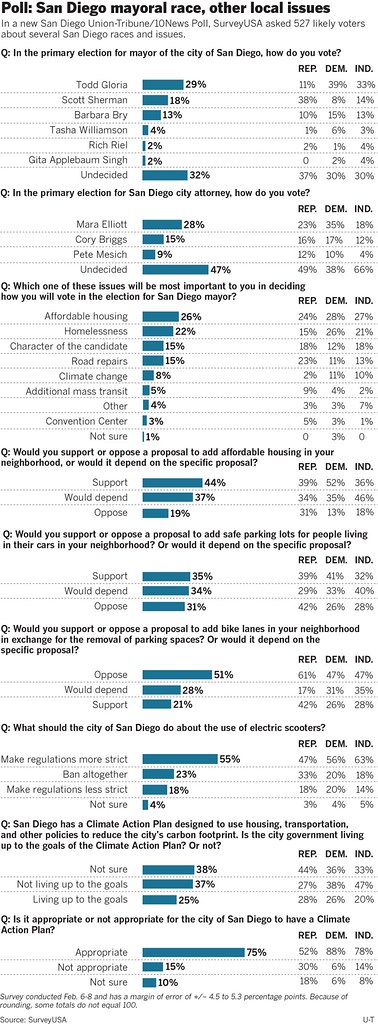-- affordable housing in your neighborhood
-- would you support bike lanes at the cost of parking
-- financing a new convention center
-- etc.
Pretty interesting.

"A community’s physical form, rather than its land uses, is its most intrinsic and enduring characteristic." [Katz, EPA] This blog focuses on place and placemaking and all that makes it work--historic preservation, urban design, transportation, asset-based community development, arts & cultural development, commercial district revitalization, tourism & destination development, and quality of life advocacy--along with doses of civic engagement and good governance watchdogging.

The problem with the issue part, for example on the homeless issue -- is the solution
ReplyDelete1) spend $50 billion building new shelters;
2) give the homeless a ticket to Phoenix.
Likewise with affordable housing.
off topic:
https://www.popville.com/2020/02/h-street-ne-legend-horace-dickies-reportedly-closing-on-march-1st-after-30-years/
Thanks for the cite. FWIW, I never was super enamored with their food. One opened up in Takoma (never understood why) and it was the talk of the listserv before and when it opened, and in the many years later is never mentioned.
ReplyDeleteMost importantly, it is a sign of a changing neighborhood.
Something I figured out about H St. 15+ years ago was that even then the neighborhood had changed, but the commercial district had not, that people patronizing the businesses mostly came to the district from somewhere else. (Although I guess that's true today today, when it comes to the night daypart.)
cf. https://www.washingtonpost.com/lifestyle/style/gentrification-spelled-out-fish-in-the-hood-renamed-fish-in-the-neighborhood/2012/05/28/gJQAYfEiyU_story.html
1. https://www.youtube.com/watch?v=mUg5p3BncuQ
ReplyDelete2. But I will admonish you a bit. Eventually, that won't work, unless you're sending people to Casper, Wyoming...
From a social standpoint, there needs to be a variety of housing at different price points. And housing for the lowest income segments will have to be publicly provided.
Not that you don't know any of this.
But it should funded at the regional-state scale. It's not fair to put most of the cost onto center cities.
Admonishment accepted. Although I was just trying to point out two extremes on the "homeless" issue which might be captured by questions.
ReplyDeleteTrump has released a set of new proposals on mental health which actually will impact homeless quite a bit. I realize the advocates want to talk about housing problems but its mostly drugs+mental problems that is driving the problem.
https://www.mhanational.org/blog/how-trumps-budget-will-affect-people-mental-health-conditions
https://www.washingtonpost.com/opinions/2020/02/09/americans-have-failed-people-with-mental-illness-trumps-new-budget-will-change-that/
Not in a position to evaluate claims other that it will change funding streams quite a bit.
The only thing about the Trump Administration stuff is that it is so unlikely that they are focused on improving outcomes, given the demonization of cities and California concerning the homeless.
ReplyDeleteBut yes, it's about mental health and substance abuse for the most part, multi-generational poverty, and how with a gradual rise in prices there's no longer extremely low cost housing available to the marginalized. Instead it's now very much out in the open.
I haven't written about the latest in SLC and the homeless.
ReplyDeleteLike many Western cities, it's pretty bad.
The main shelter was on the outskirts of downtown in an area the GM wants to improve, and it became really bad, lots of crime, murders, drug dealing.
So they decided, not like what DC did with DC General, to do distributed shelters, and like DC, to not build enough spaces.
Distribution, like in DC, creates problems because some of the shelters aren't well located in terms of proximity to transit and other services.
And they didn't build enough spaces (fewer than the old Road Home shelter) so SLC has already had to open a temporary shelter.
And there is still plenty of people living on the street in Downtown, in and around the Library Square area.
There were a lot of protests, including interrupting public meetings, and the Republicans and police got bent out of shape by it.
But they were right to keep raising the issue of the number of units.
The thing is I guess that the state believed its rhetoric that new programs would divert people out of the system.
Better to have built more spaces, and/or another shelter with the long term goal of being able to convert it to regular housing once the new programs generated the (unlikely to be achieved) expected results.
You guys joke, but they are spending probably at least 2 billion a year now in LA and the numbers keep increasing by double digits every year :/ Building new units at an avg of 600k as they are doing there is an utter shit show. Plus they are tearing down a lot of SROs, spending a lot of money to build new bldgs in their place and only add a few units. It's a freaking joke!
ReplyDeleteI still don't see why they didn't renovate DC General, save 400/500 million over all those shelters and use that $$$ saved towards building housing!
I agree of course about DC General.
ReplyDeleteAnd given your quoting of $600K/unit (it's cheaper in DC), you can see paying the full cost of an ADU but requiring it to be affordable for say 20 years, is way cheaper than building buildings. Of course, both should be done.
And one advantage of a building is that you can integrate social programming into it.
OR, and thank you for triggering the idea....
when I lived in H St. I lived on the same block as a shelter. When it was an itinerant night shelter it was a scourge on the community.
But then it was converted to a mid-tenure facility. It was the second stage of a three stage drug rehab program. It was seriously managed and caused no problems. The people staying there were there for up to six months, maybe more.
Maybe ADUs could be used for "homeless" housing at a later stage in a similar kind of multi-stage program, where people are a lot better positioned to be on their own.